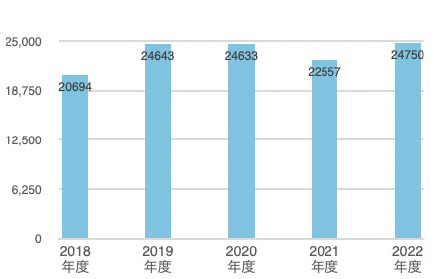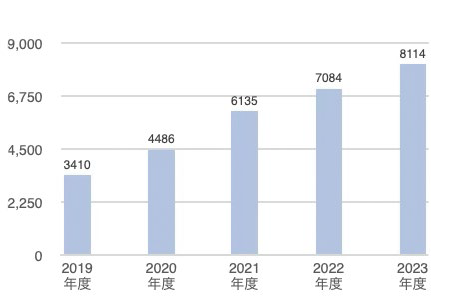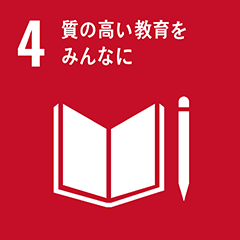Inochi Declaration
Expand educational initiatives within schools that empower children to envision a future for themselves and society—so that they can act to protect and value not only their own Inochi but also that of others.
Children represent limitless potential for the future and are embodiments of radiant Inochi itself. Yet today, their worlds are increasingly threatened—so much so that it is not an exaggeration to say they are losing their capacity to shine. In Japan, serious issues such as child abuse, chronic absenteeism, and the growing inability among children to dream about or set goals for their future continue to worsen. Concerning Osaka Prefecture, the following data highlights these trends:
Child Abuse (Osaka)

Absenteeism (Elementary school)

Compiled by the Osaka Prefectural Education Office from a survey by the Ministry of Education.
・Cases of child abuse remain unabated.
・The number of children who do not attend school continues to rise annually.
・According to surveys of 6th and 9th grade students in Osaka, the proportion of those who report having a dream or goal for the future has steadily declined.
・Reports also show that child suicides have reached record highs.
・Cases of child abuse remain unabated.
・The number of children who do not attend school continues to rise annually.
・According to surveys of 6th and 9th grade students in Osaka, the proportion of those who report having a dream or goal for the future has steadily declined.
・Reports also show that child suicides have reached record highs.
Education should be a means of shaping and securing children’s futures.

6th grade
9th grade
Percentage of children having dreams and goals for the future (National Survey of Academic Achievement and Learning Status, Osaka Prefecture results).
Now more than ever, it is essential to create opportunities for children to raise their awareness of societal issues, explore solutions, feel their ideas are recognized, and build self-worth and a sense of connection with the wider world. These experiences will help them cultivate hope for the future of both themselves and society. In response, the Osaka Prefectural Board of Education has developed the Waku Waku Doki Doki SDGs Junior Project, an educational program inspired by the Expo 2025 Osaka, Kansai, Japan theme: Designing Future Society for Our Lives.
To realize this vision, it is vital that children grow up with an awareness of being part of a diverse society—not isolated but embedded within broader social systems. It is not enough to have personal aspirations; a vision for the collective future is also essential.
In the wake of the COVID-19 pandemic, daily life was transformed into unprecedented ways. Coupled with an increasingly unstable global landscape—where war and conflict feel ever closer—and the rapid rise of AI technologies, children now face a world where it is exceedingly difficult to hold on to dreams and hopes for the future of society. In such a challenging context, the Waku Waku Doki Doki SDGs Junior Project offers children the opportunity to observe their surroundings, their communities, and the wider world as members of society. Through recognizing social issues, engaging in dialogue and collaborative activities with others, and exploring how to build a better society, children are encouraged to create their own ideas, communicate them with conviction, and take action—or envision doing so in the future. This learning initiative emphasizes that there is no single correct answer. Ideas are limitless, and each individual’s perspective holds value. It is an inquiry-based learning model where everyone is acknowledged and respected.
The project is built upon three core components:
1. An inquiry-based learning program.
2. Idea meetings with professionals who are actively involved in SDGs and social contribution.
3. A forum where students can share and deepen their ideas through broader interaction.
By delivering these three components directly to schools, Osaka Prefecture has made it possible for students to turn their ideas into real-world action. Since its launch in 2020, the number of participating schools has steadily increased. Notably, survey results from the Osaka Prefectural Board of Education indicate a growing number of elementary and junior high school students who respond: “I have strengths I can be proud of.”
Looking ahead, the project aims to establish a future in which all schools independently recognize the value of this program and continue implementing it. By 2050, it is hoped that this kind of education will be the norm—nurturing individuals who take action to ensure that every Inochi unleashes its radiant light.
The Inochi Forum, in collaboration with diverse local governments, will support the further development and implementation of this educational program, helping to build a society in which children can envision and shape hopeful futures for themselves and their communities.
[References]
・Waku Waku Doki Doki SDGs Junior Project (Osaka Prefectural Board of Education)
https://www.pref.osaka.lg.jp/o180080/shochugakko/wakudoki/index.html
・Junior Expo (Japan Association for the 2025 World Exposition)
https://www.expo2025.or.jp/overview/education
[Action Platform]
Education and Children
[SDGs]


